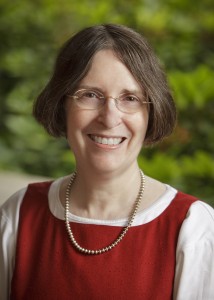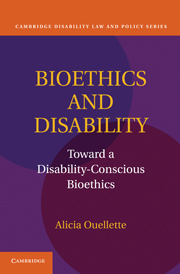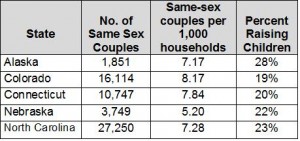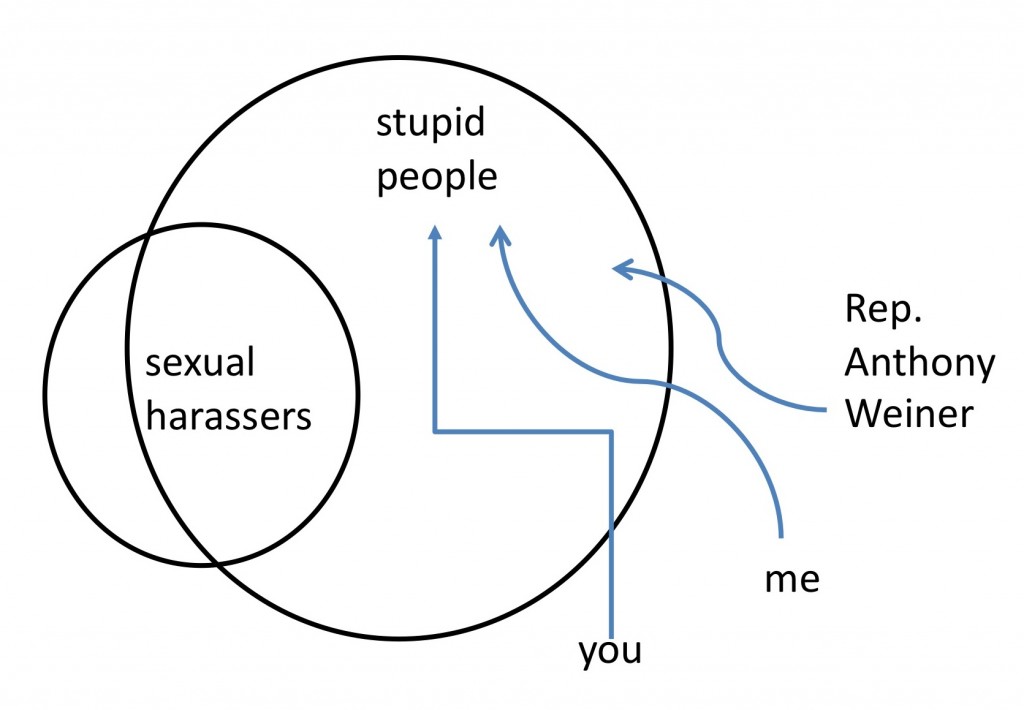It’s funny, when I was writing my dissertation many years ago, my adviser said to me: “Katherine, you’re really a libertarian when it comes to gender, aren’t you?” At the time I resisted the moniker, but is “libertarian” worse than “liberationist”? Who, on the 4th of July of all days, wouldn’t want to be called a “liberationist” after all?
That’s what Ross Douthat in the New York Times Op-Ed page called me on Monday:
At the other end of the spectrum from Rauch’s gay conservatism are the liberationists, who hope that gay marriage will help knock marriage off its cultural pedestal altogether. To liberationists, a gay rights movement that ends up reaffirming a “gold standard” for relationships will have failed in its deeper mission — which Columbia law professor Katherine M. Franke recently summarized in a Times Op-Ed article as the quest for “greater freedom than can be found in the one-size-fits-all rules of marriage.”
That’s the kind of argument that makes social conservatives worry about polygamy (and worse). But liberationism has been gradually marginalized in the gay community over the last two decades, and gay conservatism seems to have largely carried the day. The desire to be included in an existing institution has proved stronger than the desire to eliminate every institutional constraint.
He contrasts my view, penned in a NYT Op-ed on June 23rd, with that of Dan Savage, who was profiled in a Times Magazine cover story last Sunday. Savage is a big fan of marriage – for both same- and different-sex couples – while arguing that some of the rules of marriage could and should be negotiated between the parties. I find his position puzzling: why not be an advocate for domestic partnership or other extra-marital forms of commitment that allow a couple to signal commitment to one another (you can have the big party, recite vows to one another in front of family and friends etc), but according to terms they agree on rather the ones the state insists upon. Remember, marriage is, after all, a license – and the state stays involved as a third party in the deal and its rules are non-negotiable (perhaps more importantly for Savage’s position, adultery remains a felony in New York state).
It strikes me that Savage wants it all: the economic, social and legal benefits of marriage and the respectability it brings while opting out of the rules of marriage he doesn’t care for. Of course Savage won’t get prosecuted for adultery when he has one of his non-promiscuous, extra-marital sexual nights out. But others might not be so lucky, such as when their husband is fighting them for child custody or this kind of fling would count as breaking parole). Non-monogamy within the pickets of marriage is the best he can do in thinking through the implications of same-sex couples marrying? Really? As the Times story points out: “He is capable of pro-family rants that, stripped of his habitual profanity, would be indistinguishable from Christian-right fund-raising letters.”
Savage’s “It Gets Better” video suffered from a similar form of well-meaning, but small-minded sentiment. Savage and his boyfriend Terry Miller’s video delivered the message that if you just tough it out, you too can walk the streets of Paris with your fabulous homo-family and enjoy an upper class privileged life as they have. But class, race, gender, under-education and other structural hurdles to walking the Champs Elysee as fabulous and happy metro-gays remain unaddressed by Savage’s nice liberal message. Their video launched a whole new movement of “It Gets Better” videos aiming to offer a friendly hand to kids who are struggling with their sexual desires in hostile circumstances, and many of them surfaced a more complex message than did Savage and Miller’s. For this we can thank them.
As for his views on marriage and what he calls “monogamish,” it’s not that I’m a big advocate of monogamy, but what gets me about a politics driven by Savage’s views is that it leaves marriage in tact as the “gold-standard,” to borrow Ross Douthat’s term today, for social, legal and economic value. Those folks whose lives can’t or won’t fit into the marital form, whatever their commitment to monogamy, get screwed – the pun is intended here. Marriage, a regime by which the state licenses relationships, is otherwise left undisturbed as what comes in between “love” and “the baby carriage.”
What is more, gender, class and other kinds of power that create asymmetries, if not inequalities, in a relationship seem to fade from view in his defense of “monogamish”. The best approach, by Savage’s way of thinking, “is smarter boundaries, not hard-line rules about monogamy.” After all, he says, “straight women, are in relationships with men. Doesn’t it help to know what we’re really like? Women can go on marrying and pretending that their boyfriends and husbands are Mr. Darcy or some RomCom dream man. But where’s that going to get ’em? Besides divorce court?” Is that the best he has to offer in a week when Dominique Strauss-Kahn basically got away with not having to answer charges of rape? A gender-based double-standard did the trick for him: this is just the kind of guy he is, and she was a big fat liar about all sorts of stuff, mostly none of it to do with what did nor did not happen in DSK’s hotel room. Men will be men, women are, well, liars – especially poor, immigrant, women of color.
I was on Brian Lehrer’s show the other day and I mentioned at the end of the segment that some employers allow each employee to pick a person, be they a spouse, a domestic partner, a sibling or a needy friend, to put on their health insurance. “In the U.S. we distribute health care through employment, but there’s no reason why it has to be then portalled through the very narrow channel of marriage,” I argued (with the use of a rather convoluted set of metaphors – ah, live radio!). Lehrer’s reaction indicated that this was kind of a kooky suggestion. I regret that Savage’s engagement with marriage gives us little to negate the seeming kookiness of distributing benefits and respectability to a broader group of people, those who actually need them, as opposed to those who have been forced to marry to get them.
So maybe Douthat’s right – I’d love to liberate us all from marriage – not just because of marriage’s monogamy requirement, but because the state shouldn’t be in the business of licensing love. Period.
Happy 4th of July from a true advocate of liberty!
Cross posted from the Gender & Sexuality Law Blog and from the Huffington Post.



 Alicia Ouellete (Albany) has published a new book, Bioethics and Disability: Toward a Disability-Conscious Bioethics, with Cambridge University Press.
Alicia Ouellete (Albany) has published a new book, Bioethics and Disability: Toward a Disability-Conscious Bioethics, with Cambridge University Press.  Nancy Levit (UMKC) was one of the plenary speakers at the AALS Workshop on “Women Rethinking Equality” last month. During the panel on scholarship, she had some great comments that might be interesting for readers of this blog. Under Nancy’s original headings, I’ve pulled out a few highlights:
Nancy Levit (UMKC) was one of the plenary speakers at the AALS Workshop on “Women Rethinking Equality” last month. During the panel on scholarship, she had some great comments that might be interesting for readers of this blog. Under Nancy’s original headings, I’ve pulled out a few highlights: Ralph Richard Banks (Stanford) has a book coming out on September 1, 2011.
Ralph Richard Banks (Stanford) has a book coming out on September 1, 2011. 

 Bradley A. Areheart, the Bruce R. Jacob Visiting Assistant Professor at Stetson University College of Law, has posted to SSRN his article
Bradley A. Areheart, the Bruce R. Jacob Visiting Assistant Professor at Stetson University College of Law, has posted to SSRN his article 
 I answer in the negative,
I answer in the negative,